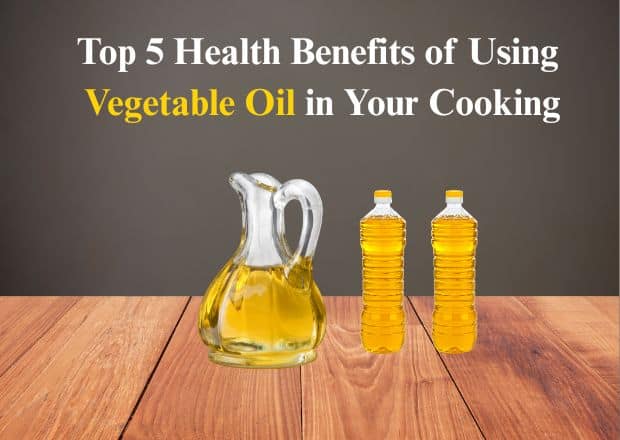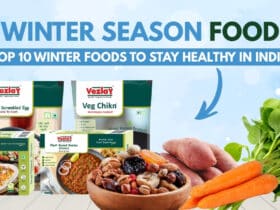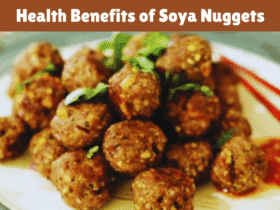When it comes to cooking, your choice of oil makes a large difference in the taste plus in overall health. Vegetable oil is now quite a popular option all around the world now, with countless choices there available. However, does it offer much aid at all? That is right as an answer. Vegetable oil can have a place for itself in there within your kitchen. Let us dive into what are the top five health benefits from its use during your daily cooking because of that one fact.
What is Vegetable Oil?
Oils which are extracted out from such seeds, nuts, or fruits of plants are what is known as a vegetable oil. Some frequent options are canola oil, corn oil, soybean oil, and sunflower oil.
These oils that are widely utilized prove versatile as well as mild regarding flavor while still withstanding many of the cooking techniques which include baking to deep frying.
Nutritional Profile of Vegetable Oil
Vegetable oils are more than just cooking mediums—they carry important nutrients:
- Rich in Unsaturated Fats: Monounsaturated and polyunsaturated fats that help maintain heart health.
- Contains Vitamin E: A powerful antioxidant that supports skin, hair, and immunity.
- Essential Fatty Acids: Such as omega-3 and omega-6, crucial for brain and body functions.
Because it brings many advantages, vegetable oil stands out. It protects your heart. Vegetable oils tend to be rich in their unsaturated fats. Saturated fats are in lard and butter indeed though.
Top 5 Health Benefits of Vegetable Oil in Cooking
1. Supports Heart Health
One of the standout benefits of vegetable oil is its ability to protect your heart. Unlike saturated fats found in butter or lard, vegetable oils are rich in unsaturated fats. These healthy fats lower bad cholesterol (LDL) while raising good cholesterol (HDL), reducing the risk of heart disease and strokes.
2. Provides Essential Fatty Acids
Our bodies can’t produce essential fatty acids like omega-3 and omega-6 on their own. Vegetable oil steps in to fill that gap, supporting brain function, cell growth, and overall health. They’re like tiny building blocks that keep your body running smoothly.
3. Boosts Nutrient Absorption
Did you know some vitamins need fat to be absorbed properly? Fat-soluble vitamins—A, D, E, and K—can only be digested and used when paired with healthy fats like those found in vegetable oil. Adding a drizzle to your salad or cooking with it ensures your body gets the most out of your meals.
4. Promotes Better Skin and Hair Health
Vegetable oils, particularly sunflower and soybean oils, are rich in antioxidants and vitamin E. These nutrients nourish your skin, prevent premature aging, and add a natural glow. Plus, they help strengthen hair, making it shinier and healthier.
5. Supports Weight Management
Contrary to popular belief, not all fats lead to weight gain. Vegetable oils, when used in moderation, provide satiety, meaning they help you feel full for longer. Replacing unhealthy trans fats with vegetable oil can actually aid in maintaining a healthy weight.
Also Check :- Vegan Protein Source
Comparing Vegetable Oil with Other Cooking Oils
- Vegetable Oil vs. Butter: Butter is high in saturated fat, while vegetable oil offers heart-healthy unsaturated fats.
- Vegetable Oil vs. Olive Oil: Olive oil has more antioxidants, but vegetable oil is often more versatile and budget-friendly.
- Vegetable Oil vs. Coconut Oil: Coconut oil contains higher saturated fat; vegetable oil is a better daily choice for most people.
How to Choose the Right Vegetable Oil?
Not all vegetable oils are created equal. Look out for:
- Refined vs. Unrefined: Refined oils are processed for longer shelf life, while unrefined or cold-pressed oils retain more nutrients.
- Cold-Pressed Oils: These are less processed and keep natural vitamins intact.
- Check Labels: Avoid oils with additives, preservatives, or hydrogenation.
Best Ways to Use Vegetable Oil in Cooking
- Vegetable oil is incredibly versatile. You can:
- Fry or sauté vegetables and meats
- Use in baking cakes, cookies, and bread
- Drizzle over salads as a dressing
- Add to marinades for extra flavor
Potential Risks of Overusing Vegetable Oil
Like everything in life, too much of anything isn’t good. Overconsumption of vegetable oil can:
- Increase calorie intake, leading to weight gain
- Cause oxidation when overheated, which may affect health
Tips for Healthy Cooking with Vegetable Oil
- Use moderate amounts—don’t drown your food in oil.
- Pair with whole foods like veggies and lean proteins.
- Cook at medium heat to preserve oil’s nutrients.
Conclusion
Vegetable oil isn’t just a cooking essential—it’s a health booster when used wisely. From protecting your heart to giving your skin a natural glow, the benefits are plenty. Remember, balance is the key. A little drizzle of vegetable oil can go a long way in making your meals both tasty and nourishing.
FAQs
1. Is vegetable oil healthier than butter?
Yes, vegetable oil is lower in saturated fats and better for heart health compared to butter.
2. Can vegetable oil help in lowering cholesterol?
Absolutely! Its unsaturated fats help reduce LDL cholesterol while boosting HDL cholesterol.
3. Is it safe to use vegetable oil every day?
Yes, in moderation. Just avoid overusing it and balance with other healthy foods.
4. Which vegetable oil is best for frying?
Sunflower and canola oils are great for frying due to their high smoke points.
5. How to store vegetable oil properly?
Keep it in a cool, dark place away from direct sunlight to maintain freshness.












Leave a Reply